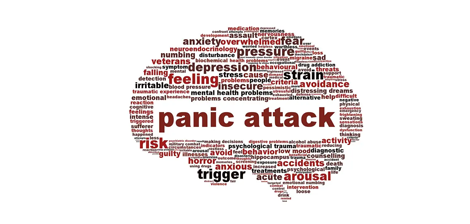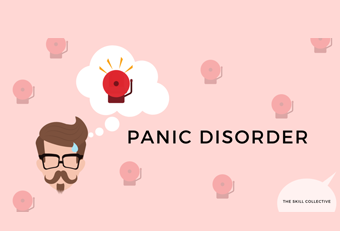
Panic attacks are sudden and intense periods of fear or anxiety that can cause physical and emotional symptoms. They are a common symptom of panic disorder, a type of anxiety disorder that affects millions of people worldwide. Panic attacks can be a scary and distressing experience, but with the right treatment, individuals can learn to manage their symptoms and improve their quality of life.
Symptoms of Panic Attacks
The symptoms of a panic attack can vary from person to person, but some common symptoms include:
- Rapid heartbeat or palpitations
- Sweating
- Trembling or shaking
- Shortness of breath or difficulty breathing
- Chest pain or discomfort
- Nausea or stomach distress
- Dizziness or lightheadedness
- Chills or hot flashes
- Fear of losing control or dying
Symptoms of a panic attack usually peak within 10 minutes and then gradually subside. However, some individuals may experience residual symptoms for a longer period of time.
Causes of Panic Attacks
The exact cause of panic attacks is not fully understood, but researchers believe that a combination of genetic, environmental, and psychological factors may play a role. Some potential causes of panic attacks include:
- Genetics: Panic disorder can run in families, and researchers have identified certain genes that may increase the risk of developing panic attacks.
- Brain chemistry: Panic attacks are thought to be related to an imbalance of certain chemicals in the brain, such as serotonin and norepinephrine.
- Environmental factors: Trauma, abuse, and stressful life events can increase the risk of developing panic attacks.
- Medical conditions: Certain medical conditions, such as heart disease or respiratory disorders, can increase the risk of panic attacks.
- Substance abuse: Alcohol and drug abuse can contribute to panic attacks.
Treatment of Panic Attacks
There are several effective treatments for panic attacks, including medication, psychotherapy, and lifestyle changes. Treatment will depend on the severity of the panic attacks and the individual’s unique needs.
Medication: Antidepressant and anti-anxiety medications are commonly used to treat panic attacks. These medications work by balancing the levels of chemicals in the brain that are related to mood and anxiety. It can take several weeks for the medication to take effect, and it is important to work with a mental health professional to find the right medication and dosage.
Psychotherapy: Psychotherapy, or talk therapy, is another effective treatment for panic attacks. Cognitive-behavioral therapy (CBT) is a type of psychotherapy that has been shown to be particularly effective for panic disorder. CBT helps individuals identify negative thought patterns and develop more positive ways of thinking. Exposure therapy is another type of psychotherapy that can be effective for panic disorder. It involves gradually exposing individuals to the situations or objects that trigger their panic attacks in a safe and controlled environment.
Lifestyle changes: Making certain lifestyle changes can also be helpful for managing panic attacks. Regular exercise, healthy eating, and getting enough sleep can all help reduce anxiety. Additionally, mindfulness meditation and relaxation techniques can help reduce stress and anxiety.
Supporting Individuals with Panic Attacks
Support from friends and family can be an important part of managing panic attacks. If you have a friend or family member who is struggling with panic attacks, there are several ways you can offer support:
- Listen without judgment: Let the person know that you are there to listen and offer support, without trying to fix their problems or judge them.
- Offer practical help: Offer to help with household tasks, such as cleaning or grocery shopping, or offer to accompany the person to appointments or activities.
- Encourage treatment: Encourage the person to seek help from a mental health professional, and offer to help them find a therapist or doctor if needed.
- Be patient: Recovery from panic disorder can take time, and it is important


Get Free Appointment
We are more than happy to give advice on which counselling is most suitable for your needs, depending on your problems. Why not ask us to view your problems and discuss for solution.
